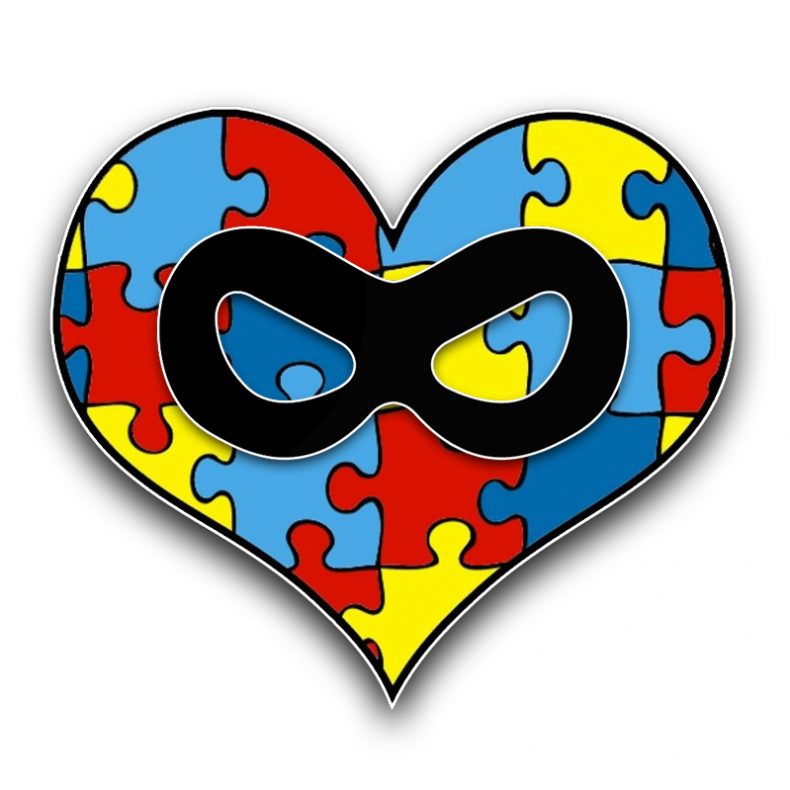Over the last few years, both Marvel and DC have made some rather controversial changes in an attempt to diversify the roster of the Avengers, which has attracted (some rather well-deserved) criticism for being mostly straight, white males. As a result, Thor became unworthy of his hammer, which was picked up by a lady that became the new Goddess of Thunder. Captain America shared his costume with his black partner Sam Wilson, previously known as the Falcon. Kamala Khan, a Muslim Pakistani-American teenage girl, became Marvel’s newest sensation. Catwoman was revealed to be bisexual, and Iceman was revealed to be gay. The Midnighter and Ms. America, two openly gay characters, got their own books. Female superheroes like Supergirl and Jessica Jones are getting critically acclaimed TV shows. There has never been a better time for representation in comic books! No matter who you are, chances are there’s at least one character in the world of comic books who is just like you… Unless you’re autistic, in which case you’re out of luck.
Now, I’ve made it no secret that I fall on the autism spectrum. While I’m not affected enough to be diagnosed with Asperger’s, a psychologist did confirm in my childhood that my brain is wired similarly to that of an autistic person. There have been some benefits to this – I’m more creative, I pick up skills more easily and I’m able to hold a lot of knowledge relating to the niches I’m interested in (such as comic books), but then there have also been some negatives, as I’m very socially withdrawn and awkward, during my childhood I had to learn how to respond to a lot of social cues and situations (a skill that comes naturally to most) and I’m also more prone to suffer from depression. Overall, I wouldn’t say that I like the way I am, but at the same time I also don’t dislike it – the good and the bad come as part of a complete package. At the end of the day, having a brain that works differently is really not all that different than loving the same gender, or having a different skin color than most in your area; it’s one of those things that define you and help you be who you are. Ultimately, that’s what comic books are all about – their point is that anyone with a good heart can be a hero regardless of the details that define their personality and character. So then why don’t we have any autistic superheroes? Are people on the spectrum unworthy of a mask, or just unable to do their duties?
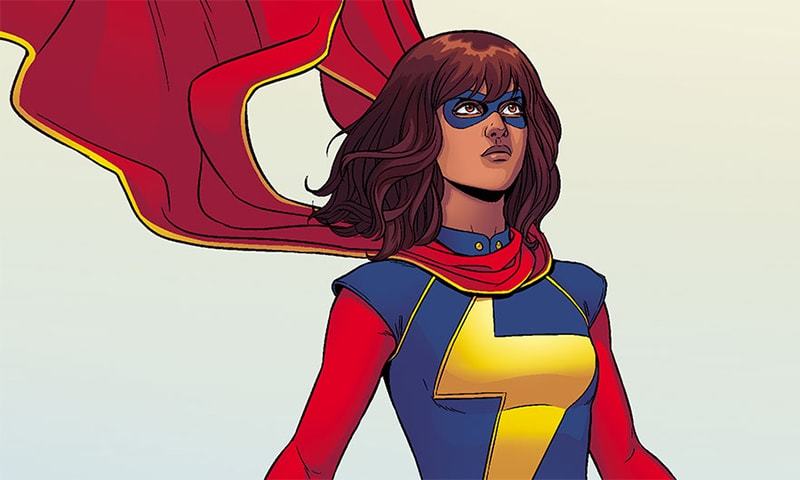
Diverse characters, like the Muslim Kamala Khan, reinforce the notion that anyone can be a hero.
When people with autism appear on the pages of a comic book, they’re generally relegated to a very small role, like a brilliant child being exploited by others for their gifts that the heroes must rescue. Throughout the years, there have been several attempts to create a character that falls on the autism spectrum (appropriately enough, most belong on the X-Men, which in itself is an allegory for every minority ever), but they were never given the proper attention they deserved. Do you know who Pathway is? What about Dummy? Anyone heard of Agent Deems? I didn’t think so. But while Marvel has at least tried (albeit unsuccessfully) to introduce a character with autism in their branch, DC are doing even worse – they only have one, and it’s about as bad of a representation as you can get. To their credit, a very major character has been explicitly stated to be autistic – Black Manta, Aquaman’s biggest nemesis. But honestly, he doesn’t really exhibit almost any of the symptoms that a psychologist would classify as signs of autism. He’s loud, violent, downright psychotic, able to forge alliances and connections easily and also very manipulative of others for his own gain. Really, he sounds a lot more like a sociopath than an autistic person. It almost seems like a writer had no idea what being autistic actually means, and just placed the label on Manta because it sounded good. And I won’t even go into detail about the comics in which he was depicted as being “cured” of his autism as a child, or that its resurgence as an adult is what drove him to villainy, because those are just insulting on so many levels and it’s better for all of us if we pretend they don’t exist.
Now, it’s important to note that some comic book characters have been theorized to be autistic, but have never been (and probably never will be) confirmed by their respective creators. This discussion, among many like it online, asks whether Batman has Asperger’s, and I have to admit that some very good points are made in the comments. More famously, a girl took her autistic little brother to see “Guardians of the Galaxy”, and once the boy saw that Drax the Destroyer couldn’t understand metaphors (a common trait among people with autism, and one apparently shared by Drax’s species), he was ecstatic that he finally had a superhero who was like him, once again proving just how powerful representation can be. I’m sure that you can make the case for practically any shy and socially withdrawn character (such as teenage Peter Parker) being autistic, but really, without an official confirmation either by a creator or the characters themselves, we can only really speculate. After all, not all people who show symptoms of autism are autistic, and not all autistic people show the most common symptoms.
An argument could be made that it’s not just autistic people who are neglected by comic books – mental illness in general seems to be something that a lot of writers seem to be averse to, and then there’s also other groups, such as transgendered people, who are similarly underrepresented. I won’t argue with those points because they’re true – we don’t have nearly enough characters in mainstream comics struggling with mental illness or gender identity, but at least there’s some. There’s more characters with schizophrenia than I can count (the most notable of which being Moon Knight). Hank Pym was diagnosed as having bipolar disorder in the comics. People such as Ultimate Jessica Drew (aka Spider-Girl), Xavin from “The Runaways” and Barbara Gordon’s roommate Alysia Yeoh are major trans or gender-fluid characters from huge, popular books, and while none are exactly Iron Man level of famous, they’re popular enough to be recognizable by a lot of comic book readers, which is definitely more than I can say about Dummy. When we’ve had major comic book characters representing almost every single major group, but not a single one that is autistic, you really start to wonder what’s going on.
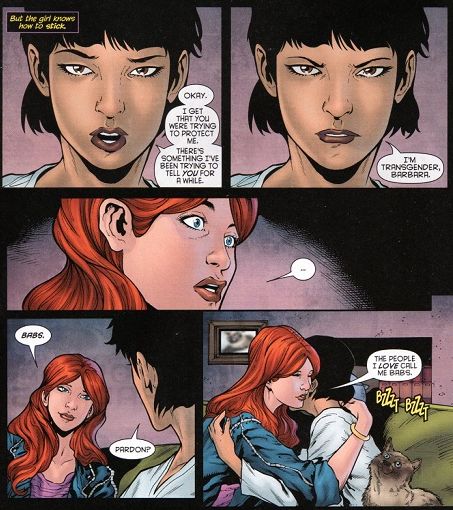
Alysia reveals to Barbara that she’s transgender.
Well, it’s easy to complain about this, but what could actually be done to mitigate this issue? Well, obviously, the solution could be to just create an autistic character, right? Well… That has been tried before, and it hasn’t really worked out. No, I believe that what we need is an autistic character designed in a very specific way. First and foremost, that character would have to be major. I’m not saying that they need to be at the forefront of the Marvel or DC universe, but they do need to have a noticeable presence. To be perfectly honest, I don’t think that just making a new superhero and giving them their own book would be the right step here. A lot of the implications of autism have to do with the autistic person’s social life. People who have autism don’t communicate or process social cues in the same way as others. The more severe cases often require rigorous training for even the simplest tasks, such as using utensils for feeding. Meltdowns (violent bouts of screaming and self-harm) are common even among the less severe cases. I believe that, to best illustrate what a person with autism goes through in their life, it would be best if they were placed on a team such as “The Runaways”, the “Young Avengers” or the “Avengers Academy”. As tempting as it’d be to place that character among the ranks of the Inhumans or the X-Men, I think that this might be a bit too on the nose.
Second – the character has to display symptoms of autism. As I mentioned earlier, autism is a very broad condition (that’s why they call it a spectrum – people with autism may appear to be completely normal, or they could be completely antisocial to the point where they’re unable to communicate at all, or anything in between), but we’re looking for a character that a lot of people would relate to, so even though there’s some autistic people that don’t exhibit symptoms, the overwhelming majority show at least a few, and giving the character a couple of the known symptoms would allow them to stand out and would prevent them from being autistic in name only. Writers should also be very careful of falling into the Rain Man pitfall – the 1988 movie “Rain Man” may have shed a lot of light on autism, it also created a lot of misconceptions. For example, while a lot of autistic people possess savant skills (such as extraordinary memory or unmatched skills in mathematics), the same is not true for all of them. As such, it’s very important to not just take a character very similar to Raymond from “Rain Man” and then give him superpowers. That’s not really the way to go about this. Autistic people come in all shapes and sizes, so to speak – they could have savant skills, or they could not. They could be high-functioning, or they could be low-functioning. While most autistic people have trouble with communication, there’s still a lot who, through practice, have learned to be excellent at it. Just because the popular conception of an autistic person is someone who has the mental age of a 6 year old but is also brilliant doesn’t mean that that’s necessarily what autistic people want to see themselves portrayed as. It’s kind of like having a black character who used to be white, but got his skin bleached at the start of the story – that’s not really something a lot of black people can relate to. It doesn’t ring true to them. It’s not something that they could point to and, even subconsciously, say “That’s me right there”.
For the purposes of the story, our hypothetical autistic character would probably need to be high-functioning – while there are a lot of low-functioning autistic people out there, I don’t think that a superhero who can’t dress himself (or herself) or brush his teeth will be able to do a whole lot to save New York or Metropolis. But then again… Maybe they don’t have to. A superhero doesn’t necessarily need to be on the front lines punching stuff, they could have more of a support role. The aforementioned Barbara Gordon is one of the most notable examples – when the Joker paralyzed her, ending her days as Batgirl, she took on the role of an information broker and hacker that supported the Bat-family and numerous other superheroes, becoming an invaluable asset, arguably a bigger one than when she was Batgirl. What if we had a low-functioning autistic character who felt trapped in their own body, unable to really care for himself or herself, requiring a lot of training and a lot of care, but being unmatched in front of a computer? That’s too far-fetched even for comic books, isn’t it? I mean, how can someone who can’t even put on their own socks be of any use to anyone? Except there’s actually at least one person in real life who’s brilliant despite being low-functioning. Meet Carly Fleischmann.
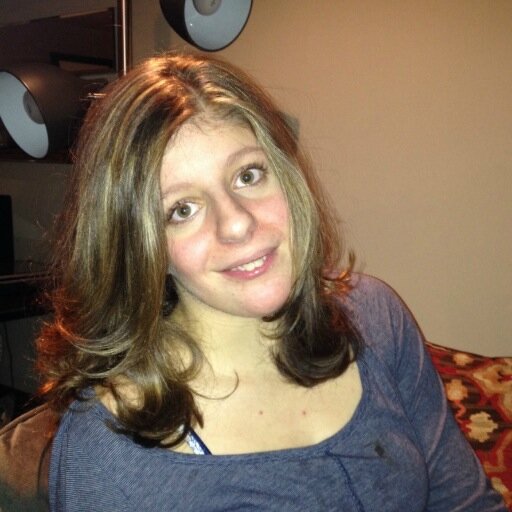
Carly Fleischmann, the autistic girl who wrote a book
Carly was diagnosed as autistic not long after her birth, and very soon it was made clear that she was low-functioning. She couldn’t really take care of herself, she couldn’t speak, she communicated only in screams and moans and did other questionable things that I won’t really get into detail here. Her parents’ options were to either deal with it or have her committed to an institution that could care for her, and if I’m to be honest, I probably would’ve done the latter. But the Fleischmanns are much stronger people than me, so they persevered. They got Carly professional help and training, and throughout many, many, many years she was taught to do basic things like eat with utensils – while they come naturally to us and we don’t even need to think about them, learning them was a huge struggle for her. While still loving their daughter, her parents and twin sister never quite held any hope that she could lead a full life. And then something amazing happened – she began typing. At first it started simply, with short, single words. But with enough training she was able to write more and more. The revelation that followed was stunning – as it turned out, Carly had a brilliant mind for her age, yet was trapped in a body that she had no control over. She was able to write paragraphs that, honestly, not even I (as someone who studied creative writing during his teenage years) could at 14-15. After a news story about her aired on several stations, Carly became a voice for the autistic community and has even written a book with the help of her father.
We all know that superheroes and comic books are all about exaggeration and metaphor. We use the X-Men as an allegory for discrimination, the Fantastic Four – as a nod towards dysfunctional families, Spider-Man as a sort of celebration for the things we all struggled with when we were teens… And yet we still give them superpowers to make them interesting and engaging, especially to a younger generation. So why not take Carly’s story and just superpower it? Imagine an autistic character who is low-functioning, that the world has given up on, someone who is trapped in their own head, until it turns out that they’ve actually got a superpower, some kind of talent which actually makes them invaluable to a superhero team. This could create a very intriguing parallel – we’re used to seeing a divide between the superhero persona and the secret identity. When he’s not Batman, Bruce Wayne has to be a vain playboy. When he’s not Superman, Clark Kent has to be a mild-mannered reporter. But these are fake personae, made up to conceal their identity as a superhero. They can be dropped instantly – if Clark Kent decides to do it, he can immediately become Superman even without a change of clothes. Bruce Wayne has acted like Batman several times even under his civilian persona. But our autistic hero? He or she wouldn’t be able to do that. There would be a very stark divide between their superhero persona and their secret identity. As a superhero, they’re capable of saving worlds. As a civilian, they’re incapable of putting on their clothes. As a superhero, they’re the heart of the team, able to get their teammates out of trouble. As a civilian, they’re a social outcast not because they’re a nerd like Spider-Man or Kamala Khan, but because they’re literally incapable of traditional communication. It’s a fascinating divide, and one that I believe would be really interesting to explore. Not to mention, it will also give autistic children an outlet – sure, they may be locked into a body they can’t control, but there would always be this fantasy that they could become superheroes who are capable. That’s exactly what representation is supposed to do – it’s supposed to make everybody believe that they can be a hero. That’s the whole point.
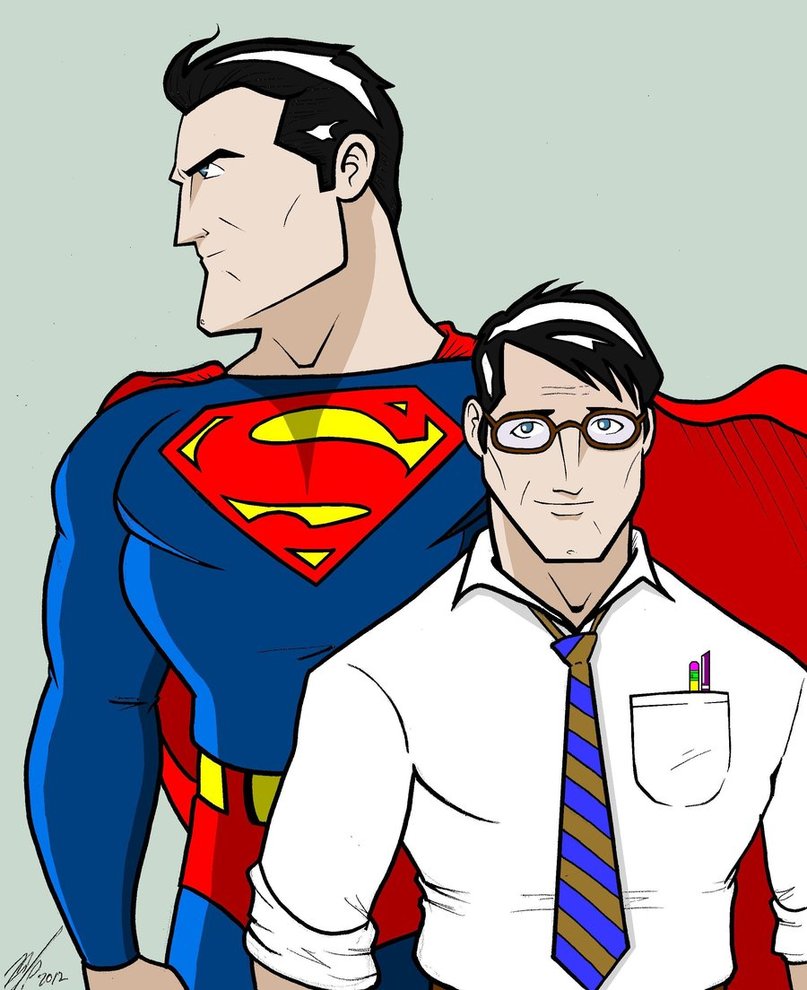
While a secret identity is usually a made-up persona, for an autistic hero it would be something much more.
Keep in mind that I’m not necessarily saying that the character HAS to be low-functioning – there’s just as many (if not more) high-functioning autistic people as there are low-functioning. A superhero with Asperger’s could also be really interesting, but I wanted to share my own idea about how a low-functioning hero could work. In the world of comic books anything and anyone can be a hero, no matter what. We’ve had heroes from the most unlikely backgrounds – the king of a secret African nation, a Norse god, a talking raccoon… If these are possible, why is having a proper hero who is autistic so difficult? I suppose the answer is that autism is a condition that’s very close to home. Roughly one percent of the human population is on the autism spectrum – that’s over 70 million people worldwide. In the US, one of 68 children born will be autistic. It’s not a condition from the world of fantasy. It’s not easy to portray a walking tree or a living planet disrespectfully, but when dealing with an autistic character writers suddenly walk a very fine line. A year or two ago, maybe I would have said that by creating a character with autism the big publishers run the risk of outraging their audience, but honestly? Considering the many changes both Marvel and DC have made to their books in recent years (the revelation that there are three Jokers, the inclusion of the Watchmen universe in mainstream DC, basically every big thing Marvel has done since 2014), it doesn’t seem like the risk factor is a big thing.
To be perfectly honest, I’m stumped. I have no idea why not a single writer has pitched a major autistic character in comic books (or, if they have, why their pitch was rejected). It’s easy to presume malice or prejudice, but that doesn’t quite make sense either. At this point, the only guess I have is that Marvel and DC just haven’t gotten around to it yet. But that’s not a good enough excuse, not really. Both publishers have dedicated the last few years to diversifying their line-ups – they haven’t always done it well, or with grace, but I’ll be damned if they haven’t tried. Right now, at Marvel, we’ve got major characters of almost all walks of life – an Asian Hulk, a Thor fighting cancer, a lower-class Iron Man (well, Iron Girl), you name it. All that considered, there is absolutely no reason why we also shouldn’t have a character that has autism. I have a feeling that if there is demand for that character, then one of the two big publishers will fold sooner or later. So I don’t know, maybe a Twitter hashtag is in order? I’m sure someone much more adept at social media can figure it out and, hopefully, grant is with the very first prominent autistic superhero. Or, y’know, supervillain. As long as they’re not Black Manta levels of “I’M EVIL BECAUSE AUTISM”, who says they have to be on the side of good?

